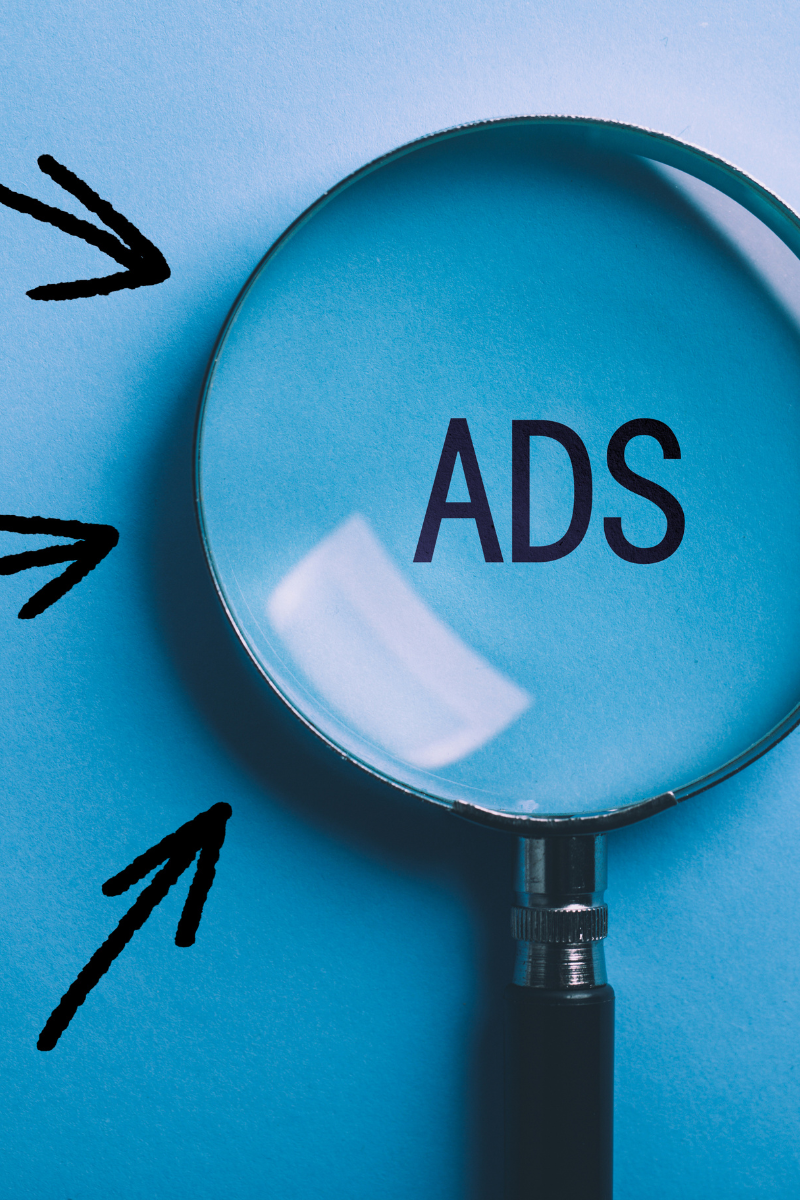Elevate Audience Targeting with Google Ads
As your trusted certified Google Partner for nearly two decades, Onimod Global understands Google Ads remains one of the most powerful tools for businesses to reach their ideal audience. Nearly half (46%) of all Google searches are local, meaning people often look for businesses, services, or products nearby. However, running ads without strategic audience targeting can lead to wasted ad spend and suboptimal results.
Effective audience targeting is the key to ensuring your ad dollars are well spent, helping you connect with the right users at the right time. In this blog, we’ll explore how you can elevate your audience targeting with Google Ads to maximize conversions, increase ROI, and drive meaningful engagement. Here’s what you need to know.
Understanding Google Ads Audience Targeting 
Google Ads offers multiple audience targeting options, allowing advertisers to segment users based on interests, behaviors, demographics, and intent. By refining your targeting strategy, you can help ensure that your ads are displayed to users most likely to convert.
Google’s audience targeting capabilities can be categorized into:
- Affinity Audiences – Users grouped based on long-term interests and behaviors.
- In-Market Audiences – People actively searching for or researching products/services.
- Custom Audiences – Advertisers create audiences based on search behavior, website visits, or app interactions.
- Demographic Targeting – Filtering audiences by age, gender, income, parental status, etc.
- Customer Match – Use first-party data, such as email lists, to reach specific customers.
- Remarketing Audiences – Targeting users who have previously visited your site or engaged with your content.
- Lookalike (Similar) Audiences – Expanding reach to new users similar to existing high-value customers.
Each targeting option offers unique benefits depending on your campaign objectives, whether driving brand awareness, generating leads, or increasing sales. Let’s take a closer look at tips for elevating your audience targeting with Google Ads.
 1. Leveraging Custom Audiences for Precision Targeting
1. Leveraging Custom Audiences for Precision Targeting
Custom Audiences allow advertisers to tailor targeting based on specific keywords, URLs, apps, or interests. This helps brands connect with users showing intent rather than relying solely on broad affinity groups.
How to Use Custom Audiences Effectively:
- Keyword-Based Targeting: Use keywords from search queries related to your business to help create audience segments.
- URL Targeting: Enter competitors’ websites or industry-specific pages to target users with relevant interests.
- App-Based Targeting: Target users who engage with specific apps related to your industry.
By refining audience creation, businesses can ensure that ads reach users more likely to convert.
2. Expanding Reach with Lookalike (Similar) Audiences
Lookalike audiences, or Similar Audiences, are generated by Google Ads using machine learning to find users similar to your existing customers. This is particularly useful for scaling campaigns while maintaining high relevance.
Best Practices for Lookalike Targeting:
- Use High-Quality Source Data: The better your original audience data (such as past purchasers), the more effective Similar Audiences will be.
- Segment by Behavior: Create lookalike audiences based on high-value actions such as completed purchases or form submissions.
- Test Audience Sizes: Start with smaller audience groups for better accuracy, then expand gradually.
3. Engaging Past Visitors with Remarketing
Remarketing, also known as retargeting, is a digital marketing strategy that helps businesses reconnect with people who have previously visited their website or social media. This strategy allows you to stay top-of-mind and encourage return visits.
Remarketing Tactics to Implement:
- Standard Remarketing: Shows ads to past website visitors as they browse Google Display Network sites.
- Dynamic Remarketing: Displays personalized ads based on user’s previous interactions with your products or services.
- Remarketing Lists for Search Ads (RLSA): Adjust search bids for users who have visited your site before, increasing the likelihood of conversions.
Remarketing can significantly boost conversion rates by re-engaging potential customers already familiar with your brand.
4. Capitalizing on In-Market Audiences for Purchase Intent
In-market audiences help advertisers reach users actively researching or considering purchasing specific products or services. Google categorizes these users based on recent browsing behavior, making them prime candidates for conversion-focused campaigns.
Implementing In-Market Audiences:
- Identify High-Intent Categories: Use Google’s pre-defined in-market segments that align with your offerings.
- Combine with Remarketing: Layer in-market targeting with remarketing lists for increased conversion potential.
- Adjust Bidding Strategies: Allocate higher bids to in-market users to maximize engagement with high-intent audiences.
You can drive immediate results by targeting users already showing strong purchase intent.
5. Personalizing Campaigns with Customer Match Targeting 
Demographic targeting lets you refine your audience based on age, gender, income level, parental status, etc. Combined with Customer Match, which uses first-party data (such as email lists or CRM data), it becomes a powerful tool for hyper-targeted advertising.
Best Practices for Using Demographics and Customer Match:
- Segment by Demographics: Exclude irrelevant groups and focus on your ideal customer profile.
- Use First-Party Data: Upload email lists to re-engage existing customers across search, shopping, and YouTube ads.
- Personalize Ad Messaging: Tailor ad copy based on demographic insights for improved performance.
This approach enhances relevancy and increases the likelihood of conversions by targeting users with personalized messaging.
6. Optimizing Google Ads with AI-Driven Audience Signals
Google Ads’ AI-powered audience signals help advertisers automate and refine targeting by analyzing real-time user behavior. Smart Bidding strategies leverage AI to adjust bids dynamically based on the likelihood of conversion.
AI-Driven Optimization Tips:
- Use Smart Bidding: Enable Target CPA (Cost-Per-Acquisition) or Target ROAS (Return on Ad Spend) to optimize bids automatically.
- Leverage Predictive Analytics: Google’s machine learning analyzes user behavior to predict which audiences are more likely to convert.
- Continuously Test and Adapt: AI-driven targeting constantly evolves, so regularly analyze performance data and make necessary adjustments.
Final Thoughts
At Onimod Global, we are proud to be a Google Partner, a designation recognizing our expertise in managing Google Ads campaigns with proven success. From search and display ads to YouTube and Performance Max campaigns, we leverage cutting-edge tools, audience insights, and AI-driven bidding strategies to help ensure your ads reach the right audience at the right time.
If you need expert guidance in optimizing your Google Ads strategy, our team of Google experts can help you find data-driven marketing solutions that maximize ROI. Onimod Global is here to help you refine your targeting and achieve your digital advertising goals.
Contact us today, and let us help you elevate your Google Ads strategy.
FAQs on Google Ads Audience Targeting
How do I determine which audience targeting option is best for my business?
It depends on your goals. If you’re focused on brand awareness, Affinity Audiences work well. For conversion-driven campaigns, In-Market Audiences and Remarketing are effective. Custom Audiences are ideal for businesses wanting more control over targeting. Our Google-certified experts will analyze your business objectives, industry trends, and customer data to develop a customized audience targeting strategy that maximizes your ad spend and delivers the best results.
Can I use multiple audience targeting methods in the same campaign?
Layering multiple targeting methods, such as demographic filters with in-market or remarketing audiences, can help improve ad performance and relevance. Our data-driven approach helps fine-tune your audience segments for potential conversions.
What’s the difference between remarketing and Similar Audiences?
Remarketing targets users who have interacted with your brand, while Similar Audiences find new users who share characteristics with your existing customers. Our team fine-tunes ad messaging and bidding strategies to help ensure your campaigns convert effectively.
How often should I update my audience lists?
Regular updates are crucial. Refreshing Customer Match lists, testing new Custom Audience segments, and analyzing in-market trends can keep your targeting relevant and effective. Whether refining retargeting strategies or updating lookalike audiences, we help your business stay ahead of competitors.
Does audience targeting affect Quality Score in Google Ads?
Audience targeting doesn’t impact the Quality Score but can improve click-through rates (CTR) and conversion rates, contributing to better ad performance and lower costs. Our team continuously optimizes campaigns to help you get the best results for your budget.

